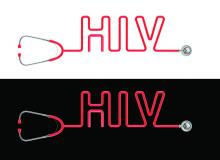Global cases of HIV from 2015 to 2035 would be reduced by over 50% if the Joint United Nations Program on HIV/AIDS 95/95/95 target is met and a moderately effective HIV vaccine is introduced by 2020, according to new research published in Proceedings of the National Academy of Sciences.
A custom model based on current rates of diagnosis and treatment in 127 countries predicts that a total of 49 million new cases of HIV would occur globally from 2015 to 2035, investigators said. Achieving the UNAIDS goal of 95% disease diagnosis, 95% antiretroviral coverage, and 95% viral suppression by 2030 would avert 25 million cases by 2035. Achieving the more modest 90/90/90 target would avert 22 million cases within the same time period.
The introduction of an HIV vaccine in 2020 with a 50% efficacy rate reaching 70% of the population by 2035, would – if the status quo is maintained in terms of diagnosis and treatment – prevent 18.7 million cases. A rollout date of 2025 would prevent 11.3 million cases. In the best-case scenario, where the 95/95/95 target is achieved by 2030 and a 50% efficacy vaccine is introduced by 2020, a total of 31 million HIV cases would be prevented from 2015 to 2035.“Recent results from the HVTN 100 vaccine trial have bolstered optimism for the development and deployment of an HIV vaccine in the near term,” the investigators said. “HIV vaccination would enable a strategic shift from reactive to proactive control, as suggested by our finding that an HIV vaccine with even moderate efficacy rolled out in 2020 could avert 17 million new infections by 2035 relative to expectations under status quo interventions.”
Find the full study in PNAS (doi: 10.1073/pnas.1620788114)
On Twitter @IDPractitioner


